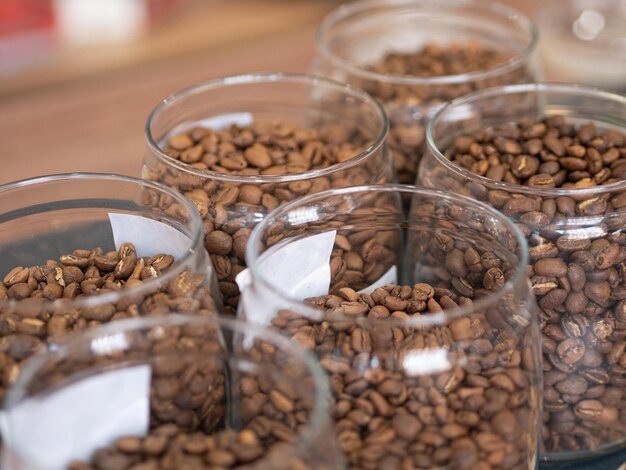Is Storing Coffee in the Refrigerator a Smart Move?
Few beverages command such a passionate following as coffee. Whether it’s a morning ritual, an afternoon pick-me-up, or a flavorful indulgence, coffee holds a special place in many people's hearts. Given its popularity, a commonly debated question in the coffee world is: Should coffee be stored in the refrigerator? Let's uncover the details, myths, and best practices.
☕ Understanding Coffee's Nature
Coffee, both in bean and ground form, is delicate and highly susceptible to environmental factors like light, moisture, and air. These elements can degrade its flavor and aroma. Understanding coffee’s composition and its interaction with outside elements is key to determining the best storage method.
The Impact of Moisture
Moisture is the enemy of fresh coffee. When coffee is stored in a humid environment, it can absorb moisture, leading to a staling process. The refrigerator, contrary to popular belief, is a humid environment due to its condensation processes. This means that storing coffee in the refrigerator might expose it to unwanted moisture.
Light and Air Exposure
Exposure to light and air can also accelerate the degradation process of coffee, causing it to lose its vibrant taste and rich scent. The refrigerator may shield your stash from light, but the frequent opening and closing of the door might not effectively guard against air exposure.
📦 Key Considerations for Coffee Storage
When deliberating on whether the refrigerator is a suitable place for your coffee, take these factors into account:
Container: Airtight containers are ideal for minimizing air exposure. Glass, ceramic, or non-reactive metal containers with secure seals work best.
Original Packaging: If resealable and opaque, the original packaging can often be a good option, designed to offer both light and air protection.
Light Protection: Store coffee in a dark place, as light can heat up the beans and make them stale quicker. If using a glass jar, keep it in a cupboard or pantry.
Temperature Consistency: Coffee thrives in stable temperatures. Frequent changes, such as those caused by moving it in and out of a refrigerator, can prompt condensation, detrimentally impacting flavor.
🧊 Refrigerator: Friend or Foe?
Pros and Cons
Here’s a breakdown of potential benefits and drawbacks of storing coffee in the refrigerator:
Pros:
- Prolongs Shelf Life: In theory, cooler temperatures can slow down the chemical reactions responsible for the aging of coffee.
- Protection from Light: The dark environment of a refrigerator may help preserve freshness.
Cons:
- Humidity and Condensation: Can introduce moisture, which is detrimental to coffee’s quality.
- Odor Absorption: Coffee is porous and can absorb odors from nearby foods, impacting flavor.
- Regular Access Impractical: Frequent opening exposes coffee to temperature fluctuations and air.
When the Refrigerator Works
If there’s a compelling need to store coffee long-term, such as bulk buying or less frequent use, the refrigerator might be an option — but only for whole beans, tightly sealed, and when moved infrequently. Always ensure the beans are thoroughly sealed away from humidity, using the best possible airtight container.
📚 Exploring Alternative Storage Options
Pantry Storage
For daily use and short-term storage—in terms of a couple of weeks—a dark, cool pantry is often ideal. Coffee can be stored in its original, resealable bag or in an airtight jar placed in the back of the pantry away from heat and moisture.
Freezer Storage
As a longer-term option, storing coffee in the freezer can be effective when done properly. Again, only store whole beans this way to mitigate moisture uptake. Divide into smaller portions if possible, preventing excess exposure to fluctuating temperatures when removed for grinding.
🌟 Quick Takeaways
For a handy summary, keep these storage tips in mind:
- 🚫 Avoid Moisture: Keep coffee away from humidity and damp conditions.
- 🔒 Secure Airtight Storage: Use airtight containers to minimize oxygen and odor exposure.
- 🕶 Shield From Light: Store coffee in a dark place or opaque packaging.
- 🌡 Maintain Consistency: Keep temperature stable to avoid condensation.
☕ Conclusion: To Refrigerate or Not
Ultimately, the decision to store coffee in the refrigerator depends largely on your specific circumstances and needs. For regular coffee drinkers who purchase in small quantities and consume quickly, storing coffee in a cool, dark pantry offers an ideal balance. Meanwhile, for those who need long-term solutions, investing in airtight containers and potentially considering freezer use, while cautious, might be more beneficial.
Approach coffee storage with care. By understanding the nuances of freshness and flavor, you’re empowered to savor every delightful cup. Whether you choose pantry, refrigerator, or freezer, knowledge of best practices will ensure that your coffee retains its best possible taste.

